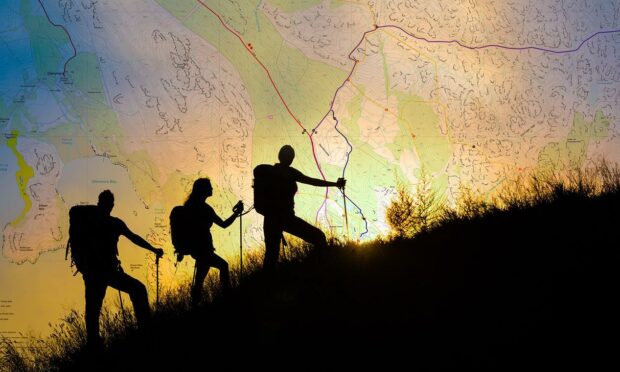The latest chapter in a long-running access dispute at a Highland estate will be heard in court today.
Woodland Renewables, part of the Ardnamurchan Estate, wants a sheriff to rule that access rights should not apply over land it uses as a wood yard, north of Glenborrodale.
But access campaigners say an historic and popular route that links Glenborrodale to Acharacle runs through the yard.
Highland Council has confirmed it is opposing the application at Fort William Sheriff Court.
Ramblers Scotland supports the council. It has applied to the court to be part of the hearing into the estate’s application under Section 28 of the Land Reform (Scotland) Act 2003.
Claims that access has been blocked
Campaigners have been in dispute with the estate for some time amid claims access to the hills has been blocked in contravention of the Act and the Scottish Outdoor Access Code.
The council said it did not wish to comment on the court case at this stage.
It has proposed making a route linking Acharacle, Arivegaig, Glenborrodale and Laga a core path.
This drew 39 messages of support and eight objections, including from the estate, local businesses and a petition signed by 200 people.
Ramblers Scotland director Brendan Paddy said: “We always view legal action as a last resort.
“In fact, we’ve not entered an access case of this type in more than a decade.
“However, we must stand up for our hard-won access rights, especially when attempts are made to block nationally-important routes such as at Glenborrodale.
“This historic path offers stunning views of Loch Sunart and is of great value to the local community and as a strategic long-distance path.”
He added: “Legal action can be costly so as a charity we must consider our involvement carefully.
“We intend to launch a public appeal in due course, if the sheriff allows our intervention in the case to go ahead.”
Health and safety issues
But estate owner Donald Houston says the move is due to health and safety issues and that the Act allows a farmyard to be exempt from responsible access.
“There has been a working farmyard here for over 30 years,” he said.
“Over time we increased activities at the yard.
“In parallel with that, adjacent land was used for people building houses and traditional access routes to the hill were closed off by peoples’ gardens.
“We then built a new road to give us better access to the farmyard. Since then Highland Council has attempted put a core path through it.
“It’s a working industrial site where, for health and safety reasons, we cannot allow access.
“We can’t have folk wandering willy-nilly about the yard where there are wood chippers, lorries, JCBs and chemical hazards.
“It’s dangerous, it’s as simple as that.”
He said he supports access rights “just not on the wrong places.”
Mr Houston added: “It’s a fundamental thing that land in Scotland is free to access to everybody, which I wholly support.
“But you wouldn’t want somebody walk up your garden path, go around your house and out the back garden. In the same way I can’t allow people to go through a working farmyard where there is danger. It’s bonkers.
“If you talk to the ramblers, it tends to be binary. Everything should be accessible, full stop, end of story.
“And of course there have to be limitations to that.”
‘We want people to access to hill’
He added: “We are in the tourist business as well so we genuinely want people to access the hill.
“We’ve provided five or six alternatives routes that don’t go anywhere near the shed.
“It’s a couple of acres, a tiny plot of ground, but for health and safety reason we have no choice.”
He said the area where access is not allowed makes up less than 0.1% of the estate.
“We welcome folk wandering up the hill. We make money out of tourists as well so we want to accommodate them as best we can. Just not in the wrong places.”
Tensions between walkers and the estate rose in 2019 when two local residents were reported to the police for alleged aggravated trespass.
After being interviewed and a report sent to the procurator fiscal, no further action was taken.
Related:
David Ross: Police must side with citizens to protect Scotland’s right to roam


